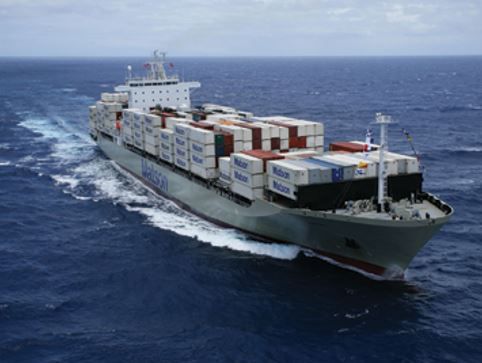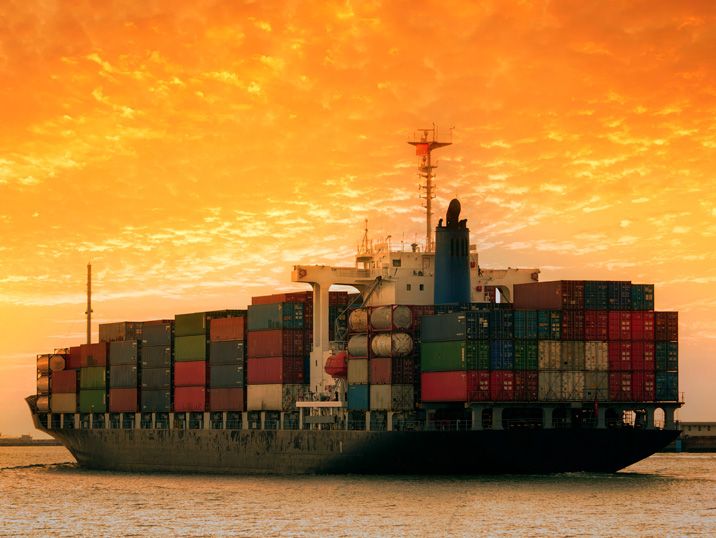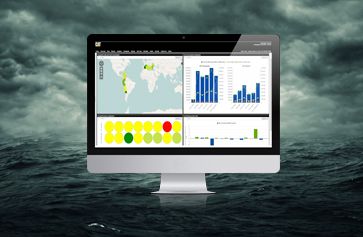Experts describe the shipping industry as suffering from a branding problem. The way forward is not merely technological (although of course there are rapid technological changes underway) but cultural as well. The industry could benefit from changing the way it sees itself and the way potential recruits see it.
In the words of industry consultant Lena Göthberg, the shipping industry, which has always been predominantly male, “is competing with all other industries to find the most talented and bright young people, men and women … and then also [to] give them an open and challenging working environment where they can flourish.”
The women we profile below stand in very different relationships to the maritime shipping industry. We have in this small sample two CEOs, one of a service provider and one of a port; one software engineer; a journalist; and a scholar. They are all playing their part in reshaping the way shipping is done.
Despina Panayiotou Theodosiou
Ms Theodosiou is one of the co-CEOs of Tototheo Maritime in Cyprus. Tototheo provides a wide range of maritime needs: satellite and radio communications, as well as bridge navigation systems, automated applications, ship repairs and operational efficiency solutions.
Speaking at the Women’s Economic Forum in New Delhi, India last year, Theodosiou said that women have to be undeterred by the stereotypes of the “bossy” or “abrasive” women that are so often invoked when a woman displays ambition or other qualities that, in a man, would simply be considered leadership. She said, “Being ambitious will get you where you want to go. It will make you push boundaries and reach your goals. It will make you want to progress and grow as a person and as a professional.”
Aside from her ‘day job’ at Tototheo, Theodosiou is on the board of directors of the Cyprus Shipping Chamber, and has served as chair of that body’s Development and Promotion Committee. She is on the boards of the Cyprus Maritime Academy the Cyprus-Germany Business Association.
She’s also the President of WISTA International, the umbrella body that oversees 40 national “Women in Shipping Trade Associations.”
Sophia Wirth
Ms Wirth is a front end software developer at Shipamax, a new London based data driven chartering platform built for the dry bulk shipping industry.
Her background is German. Wirth’s background is German, she is a graduate of the Beuth Hochschule für Technik in Berlin.
The business plan at Shipamax is an exciting one from a software point of view: Wirth and her colleagues there might succeed in replacing the thousands of unnecessary emails, siloed excel files, and instant messages between players that are currently required for maritime booking. Shipamax allows those who own the ships and those who need to move their cargo to work as team, staying ahead of market trends in the process.
Wendy Laursen
Ms Laursen has been a journalist of the maritime and engineering worlds since January 2004. She describes her skill set simply as “writing with clarity and purpose.”
Laursen has an MS in marine ecology from the University of New South Wales. She has written for trade magazines, engineering companies, and PR agencies around the world, and in 2014 she became news editor, Australasia, for The Maritime Executive.
Two years ago, for the September/October edition of The Maritime Executive, Laursen wrote a perceptive analysis of automation as a trend in shipping terminals. She identified the port of Baltimore in the US as one of those that is leading the way, and observes that as a consequence of automation, Baltimore gets as many as 75 container moves per hour per berth.
That article also identified “trip-based security telematics” as an intriguing development, a means by which parties to a transaction can “track shipments of bonded cargoes from the time they arrive at a port terminal to the point where the cargo is finally discharged and becomes liable for customs duty payments.”
Maria Carolina Romero
Ms Romero received a PhD from Hannover University in 2005 in Maritime and Environmental Law. She then took a position at the Venezuelan Maritime Association, head of the International Affairs Office.
Inn 2011, Romero became an assistant professor at World Maritime University in Malmo, Sweden. Her main fields of scholarly research are the Law of the Sea, pollution liability, ocean governance, and the IOPC funds.
Since taking the position at Malmo, Romero has become active in Maritime Women: Global Leadership (MWGL) and, in 2014, she chaired its second annual conference.
Under United Nations auspices, the MWGL seeks to integrate and empower women in the maritime sector, focusing on “education, employment, and leadership,” as Romero said in her welcome to the participants in the 2014 conference.
Christine Cabau Woehrel
Ms Woehrel is the CEO of the Port of Marseilles, France.
She began her career in marine shipping thirty-one years ago, as a secretary for CMA, which was then a small shipping company operating out of Marseilles France. The company eventually became CMA CGM, mentioned above. It also became the third largest shipping company in the world.
In 2014 Woehrel received her appointment as CEO of the Port in March 2014. This is the largest port in France and the 5th largest in Europe for global traffic.
Woehrel has initiated an ambitious investment program to diversify the port’s activities. She says that for the period 2019 to 2023 her strategy will be “Blue Economy and Green Port.” She plans to take into account sustainable port development as well as industrial and logistic concerns.



